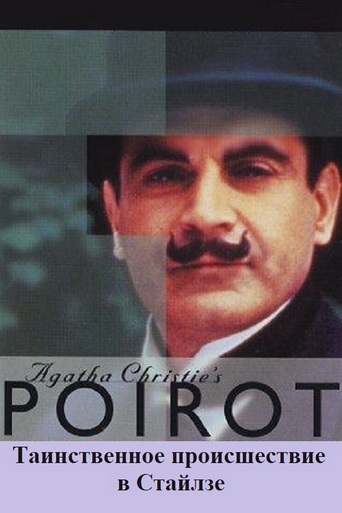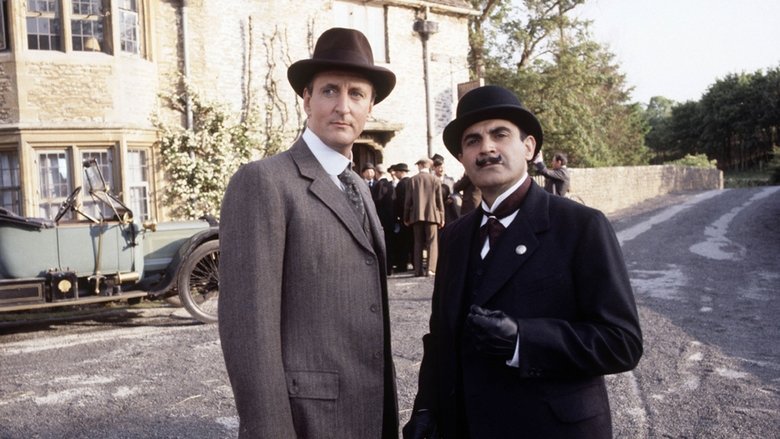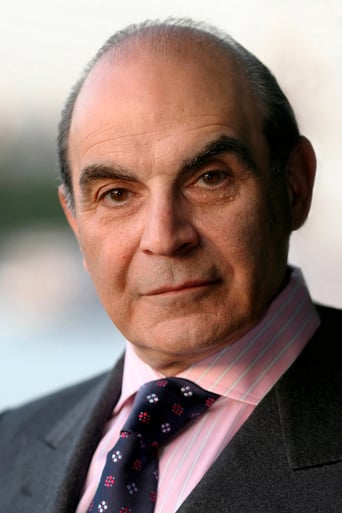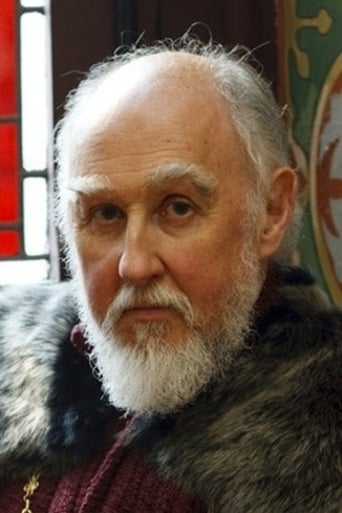

The Mysterious Affair at Styles (1990)
An elderly woman dies in pain and confusion on a hot night during World War I. A member of her family may be responsible.
Watch Trailer
Cast
Reviews
Why so much hype?
I am only giving this movie a 1 for the great cast, though I can't imagine what any of them were thinking. This movie was horrible
It's a movie as timely as it is provocative and amazingly, for much of its running time, it is weirdly funny.
what a terribly boring film. I'm sorry but this is absolutely not deserving of best picture and will be forgotten quickly. Entertaining and engaging cinema? No. Nothing performances with flat faces and mistaking silence for subtlety.
The Mysterious Affair at Styles is a very good example of early Poirot, it's a very good story, but it's the character play and development that's key to the success here. I often think it would have been nice if they'd have run this as a pilot, to set the characters up, and explain Poirot's back story, but it fits in really well nonetheless.It's a wonderfully cosy British murder mystery, you can almost hear the clink of ice in jugs of iced tea. It doesn't have the excitement of many late episodes, but it's still a very enjoyable episode. I really enjoy Michael Cronin's Alfred Inglethorpe and Joanna McCallum's Evie Howard, but the acting in general is excellent. The production values are superb.I know the solution does seem a little far fetched, but it's still cleverly devised, you just need to stretch your imagination a little.
This was the first mystery story that Agatha Christie ever wrote. Reasonably faithfully depicted here, it is an entertaining if straightforward retelling of what happened when Captain Hastings, recovering from a war wound in 1917, finds himself visiting the estate of an old friend in the village of Styles St. Mary. The same village where, coincidentally, Hastings's acquaintance Poirot has been living for the last 4 years, along with 7 other Belgian war refugees. When Poirot's benefactor, Mrs. Inglethorp dies mysteriously one night, Poirot and Hastings work together to investigate the matter.The story is helped along by some minor touches of humor, especially the scene where a young woman appeals to Hastings for advice, and Hastings impulsively proposes marriage to her. This story, outside of simply being the first Christie novel, is also noted for having her first rather shocking final revelation, one that here is so shocking that the final confession "All right, we love each other!" looks really too ridiculous to be believed. But overall, the period detail is wonderful to behold, and Suchet and company as usual do an excellent job.
The Mysterious Affair at Styles, published in 1920, is a historic novel in 2 ways: It launched the literary career of the 'Queen of Crime'-Agatha Christie and it introduced to the world the greatest fictional detective after the legendary Sherlock Holmes, Hercule Poirot. Beyond its historical significance and the fact that it was obviously well-written with a well-constructed plot, the novel is not really considered remarkable when you stack it up against some of Christie's far superior and far more famous works published over the next several decades (The Murder of Roger Ackroyd, Murder on the Orient Express, Death on the Nile, A Murder is Announced, And Then There Were None stand out as some exceptional works), but nevertheless, it certainly deserved an adaptation of some sort which is precisely what Granada did for the centenary of Christie's birth year...STYLES tells the story of how the Belgian sleuth, Hercule Poirot(David Suchet), who is a refugee from his native land during the First World War, ends up being invited by his old English friend, Arthur Hastings (Hugh Fraser) to investigate the murder of a wealthy old woman, Mrs Inglethorp, who died under mysterious circumstances in her country house, Styles Court, in the middle of the night. Poirot puts his detective skills to good use, investigating the scene of the crime, interviewing suspects and witnesses, collecting evidence and ultimately using the little 'grey cells' of the brain to discover the hidden truths of the matter. There are certainly no shortage of suspects in this case: There is Mrs. Inglethorps eldest son to consider, not to mention his wife and younger brother; there is her protégée and of course her much younger second husband who is hated by the rest of the family. Clues are in abundance as well: a smashed coffee cup, a glass of cocoa, a burnt document, a piece of green thread... The differences between STYLES and other Poirot adaptations which Suchet acted in become apparent-there is the setting to consider; Poirot is no longer (or rather, hasn't yet reached) the Art Deco settings of 1930's London; his reputation is briefly hinted at but he still isn't considered the greatest and most famous detective of Europe; Hastings too is just getting used to the idea of playing the slow sidekick to a great mind. There are also certain differences derived from the fact that this is Christie's first novel, like the abundance of clues and tangible evidence, the vast number of red herrings (later Christie stories would have more subtle psychological elements), the excessive stereotyping of the characters etc. But all this shouldn't spoil your enjoyment of a well-directed and acted TV movie. A must watch for all Christie and Poirot fans!
Most of these dramatizations are inadequate and any written by Exton wash the wonder of Christie out of the thing. So the production then has to depend on luxurious sets and supposedly interesting characters.That's not enough for me. But I do have to report that the director here has done some clever things. The lighting is atypically superb for TeeVee. There are some very nicely conceived shots that indicate Poirot's vision.But the most interesting thing is how this director has created Poirot. He's at least slightly different in every episode, and very different in this one. The excuse, probably is that it is the earliest story.Here he is human before being officious. He is tentative, not annoying. He is certain, not vain.Its not played for comedy as usual. He's an earnest inquiring eye (and hand).Most of these are trash. But at least this one is colored well.Ted's Evaluation -- 2 of 3: Has some interesting elements.


